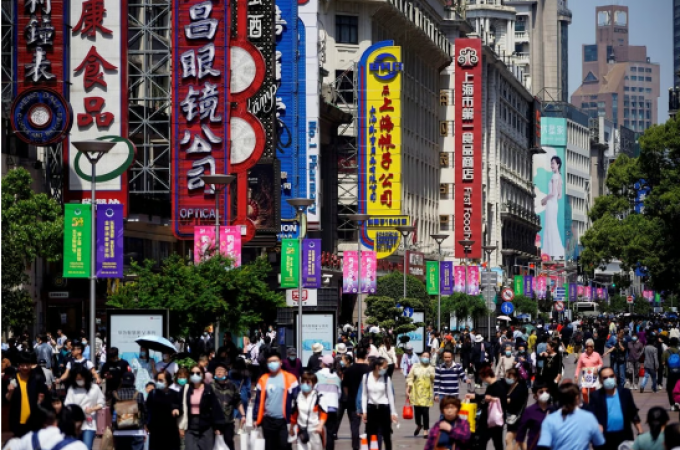
Beijing: After nearly a year of struggling to survive under a zero-Covid regime, small businesses in Shanghai are feeling conflicted about Beijing's policy reversal. Optimism that the good old days are back for good is being tempered by concern about a resurgence in cases.
In 2019, some business owners in China's major commercial hub hope to see manufacturing and business operations resume at their former levels, while others worry that patrons may leave public spaces such as malls and restaurants in the coming months. Avoid.
We're in a life-or-death situation right now, according to Han Haifeng, CEO of Shanghai New Era Printing, which is currently producing 60% of its typical annual output of packaging materials. If the country is unable to beat the pandemic in the next one to two months, "we will have to cut even more jobs."
Also Read: After a disaster Twitter has relaunched its subscriber service
The two-month city-wide lockdown in April and May has hit the bottom line of export-oriented businesses like New Era Printing. For the time being, an annual loss of 100,000 yuan (US$14,375) may be tolerable, but "we cannot afford more [losses]," he said. It seems there are two sides to the 10 point plan for small businesses.
The State Council issued additional guidelines last week to loosen its anti-epidemic strategy, eliminating the need for daily mass testing, health codes and centralized quarantine for most cases. Since the earlier directive on 11 November fueled so-called reopening bets, investors have contributed to a US$11 billion increase in the value of local stocks.
It is seen as clearing the way for the world's second-largest economy to end its three-year-long zero-Covid policy, which had slowed business and manufacturing operations.
The reopening is to blame for a flare-up of new infections. As the precautions were relaxed, the number of cases increased. New subvariants of the highly contagious but less lethal Omicron strain are believed to be responsible. On 28 November, the nation reported more than 40,000 infections, the most since the Wuhan outbreak in early 2020.
As the owner of Suiyi restaurant in Pudong, Wang Zhuliang said, "If the virus spread quickly, no customers would patronize my restaurant." "If the restaurant can't make sales, I will suffer a monthly loss of 100,000 yuan."
Also Read: UAE rover and a Japanese company's lander launch toward the moon
Shanghai, a city of 26 million people, was severely hit by the lockdown in April and May, especially retail businesses. According to government data, retail sales declined by 36.5% in May after a decline of 48.3% in April.
Economists have revised their forecasts for corporate earnings in the coming months in response to the possibility that the zero-Covid policy will be abandoned. According to a December 5 report from UBS Securities, companies in the CSI 300 index are projected to post 15% growth in 2023 as opposed to 4% growth in 2022, assuming China changes its policies after the National People's Congress in March. continues to relax. ,
Small business owners might disagree, according to Chen Xiao, CEO of Shanghai Yacheng Culture, a company that handles branding and marketing for retailers.
According to Chen, infections that are rising will hurt thousands of small businesses in the next two to three months as they may run out of money and confidence. To help them, local governments will need to implement more tax breaks and subsidies.
Local authorities in Shanghai cut a range of fees imposed during the last lockdown, offering 140 billion yuan in tax sweetener, and exempting some designated companies from paying rent on state-owned properties for three months. Additionally, banks were requested to provide low-interest bridge loans to struggling businesses.
Also Read: 1,500,000,000 inactive Twitter accounts will be deleted by Elon Musk
Most of the victims of the strict lockdown were privately owned small businesses, according to Quan Heng, secretary of the city's Communist Party and a researcher at the Shanghai Academy of Social Sciences. To help them survive and keep their jobs, the city will implement new regulations.
Small businesses are facing challenges, so the city government should provide them with strong support, he said.